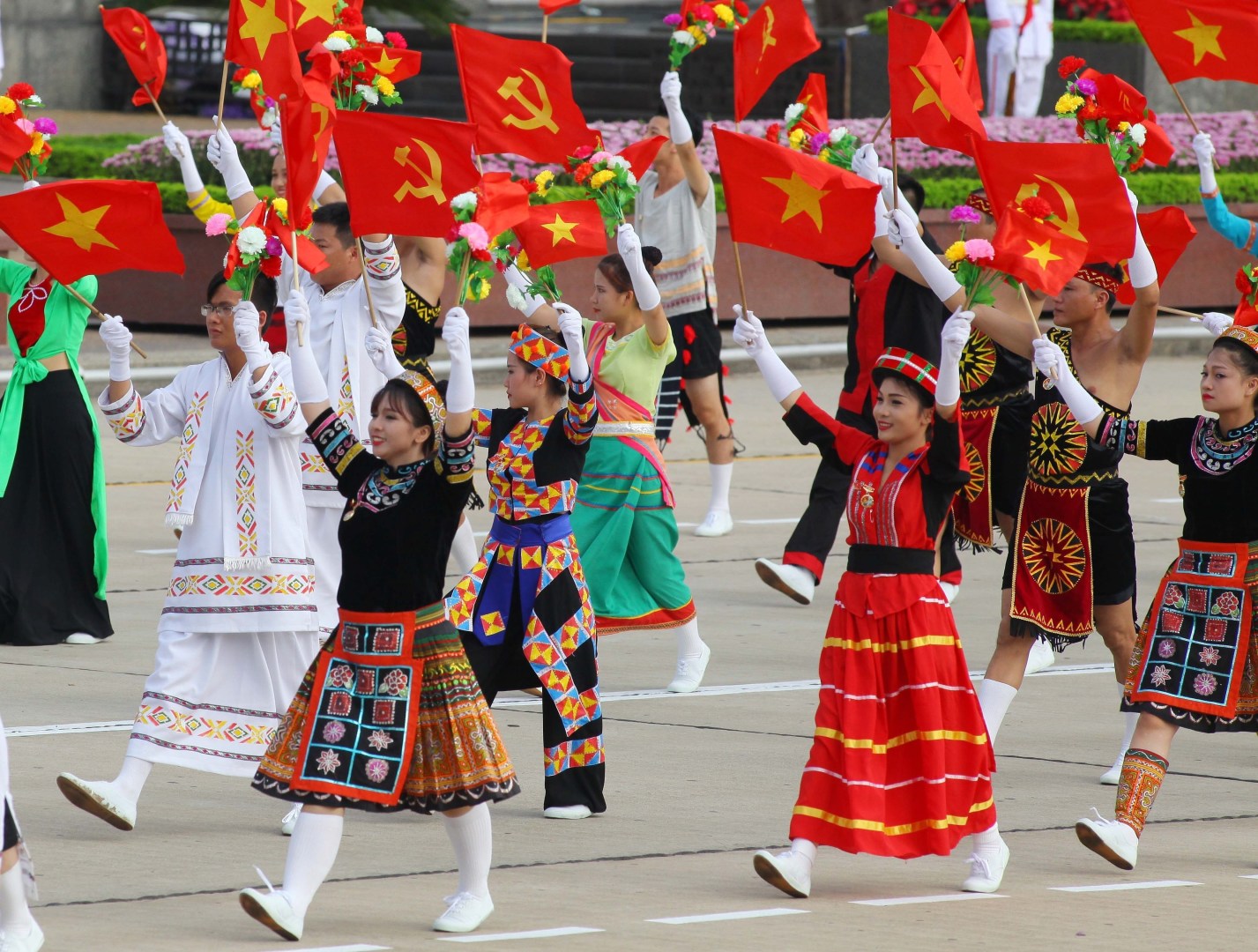
Given the current globalisation and the power of information technology, multimedia communication, and social networks, significant challenges have arisen in preserving, building, and shaping Vietnamese people’s system of cultural values.
Identifying ethnic cultural values
According to Associate Professor, Dr. Pham Van Duong, Deputy Director of the Institute of Cultural Studies under the Vietnam Academy of Social Sciences, the cultural values of the Vietnamese people include those created by people belonging to the country’s 54 ethnic communities in the past and present (with historical significance). Over time, they have crystallised into a system of cultural values, not only manifested in material aspects as cultural heritage from the past but also in cultural activities reflecting the essence of contemporary life.
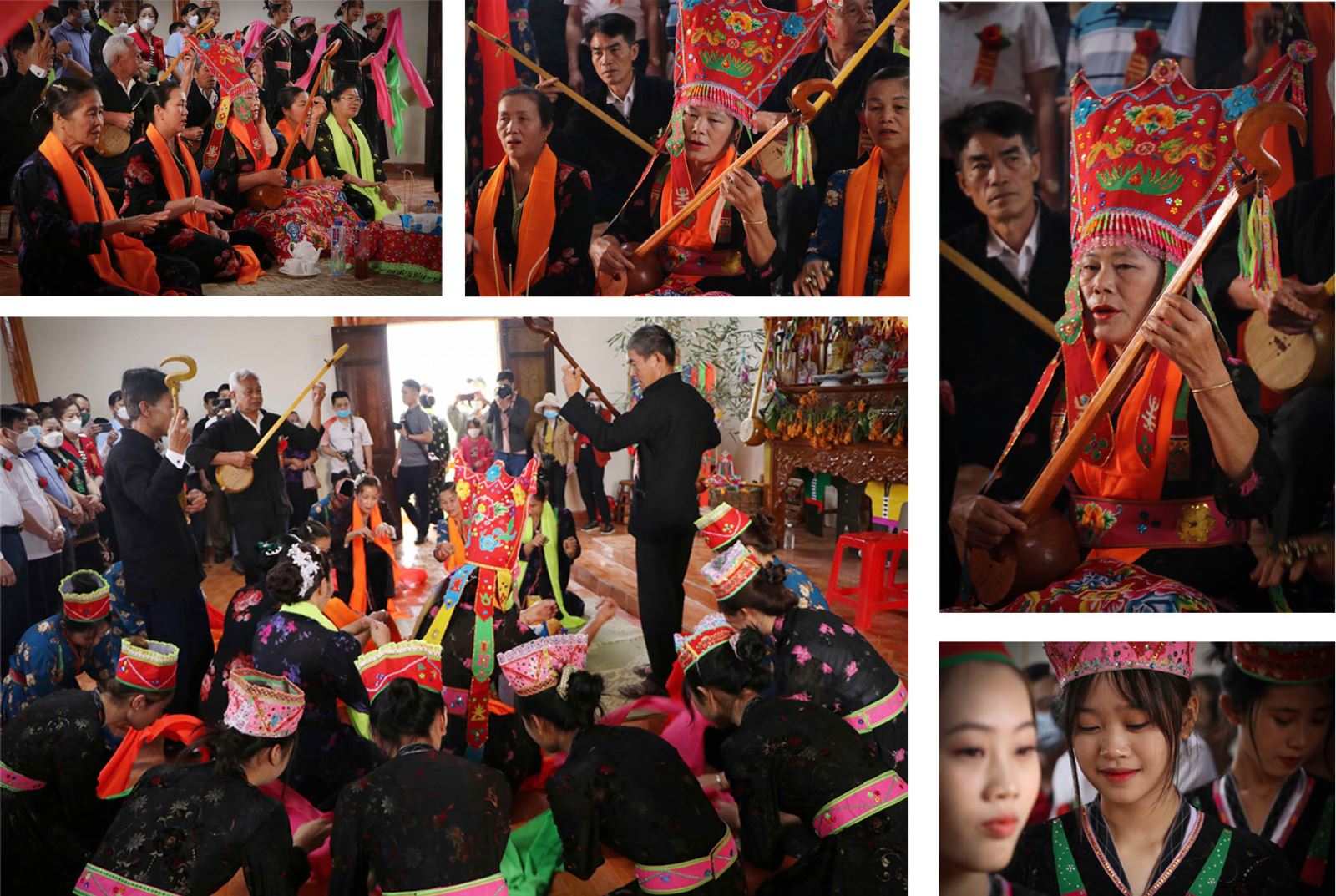
The cultural values of the Vietnamese people constitute the elements of ethnic identity, including knowledge, beliefs, ethics, art, law, and customs, among many others.
The cultural values of the 54 Vietnamese ethnic groups cover cultural forms related to habitation habits, architectural styles, and folk knowledge about the environment and resources, community customs, and economic activities of each ethnic group, and different levels of these activities during the processes of ruralisation and urbanisation. Such diverse cultural forms constitute tangible and intangible assets of a community, an ethnic group, and a region. They are also a resource for the country’s development.
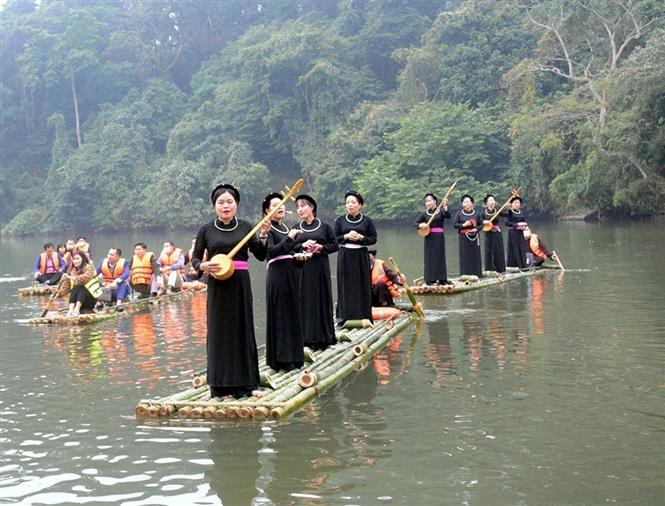
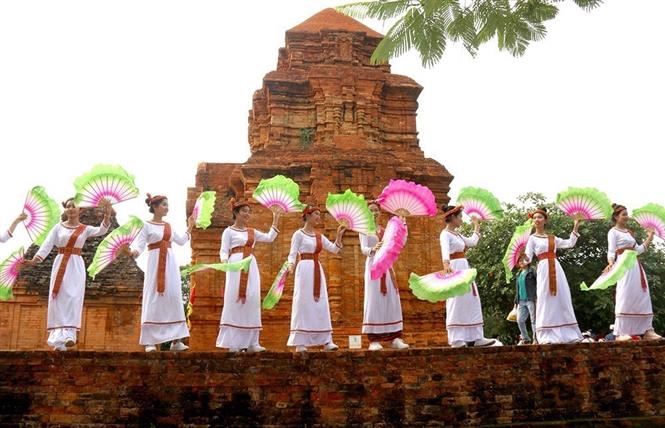
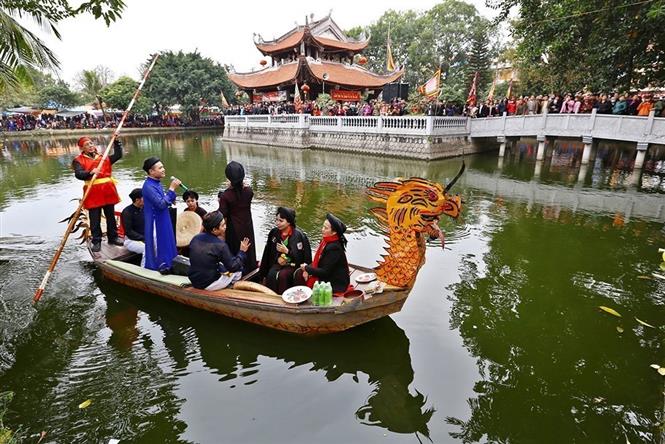
Upper, right: Kate Festival of Cham Brahman people in Binh Thuan province (Photo: VNA)
Bottom: Quan ho singing performance on a communal pond in Lim town, Tien Du district, Bac Ninh province. (Photo: VNA)
Identifying the cultural values of each ethnic group helps build a comprehensive cultural landscape, providing the foundation for simultaneously achieving the two goals of preserving and promoting cultural heritage for sustainable socioeconomic development. If cultural heritage is separated from the values of contemporary life, it is challenging to successfully meet the conservation target.
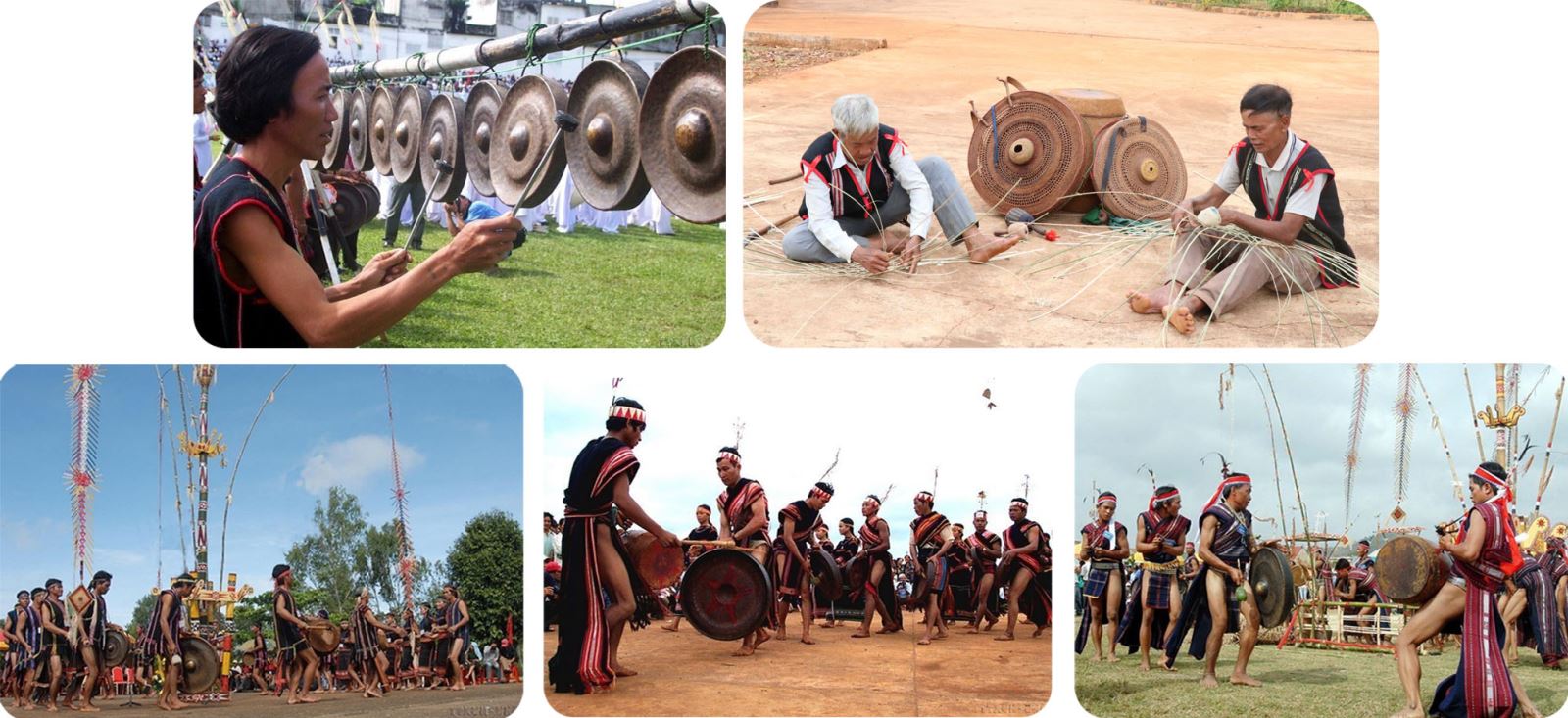
Respecting ethnic identity, regions
Associate Professor, Dr. Duong stated that the unique value of the Vietnamese people lies in their ethnic, regional, and local characteristics. These values have enabled each ethnic community to express and affirm their own characteristics. Those characteristics are established over many generations, shaped by the process of survival and interactions with nature and humans. It creates unique but not conflicting or contradictory cultural traits. For example, the cultural value of the Mong ethnic group is the resilience, determination, and adaptability to the harsh environment of the arid highlands where they live.
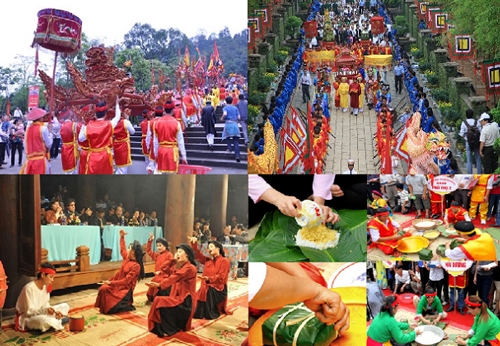
The scholar asserted that the Vietnamese people’s cultural resources are the cultural content in the behaviour of each individual, manifested in his or her attitude, personality, and a sense of responsibility. In addition to Vietnamese’s universal factors such as diligence, cleverness, and adaptability, it is necessary to focus on identifying their specific values associated with local, regional, and ethnic characteristics. From there, a cultural value system of people with local, regional, and ethnic characteristics can be built within the overall system of Vietnamese people’s cultural values.
The identification of Vietnamese people’s cultural values goes hand in hand with recognising bad habits associated with regional, local, and ethnic customs, which have for long been considered obstacles to development. This is a highly sensitive issue subject to much discussion. Duong said research regarding both scientific and cultural aspects of this issue need to be carried out, which will serve the development of educational strategies that emphasise the positive aspects, while minimising the negative in the contemporary culture of Vietnamese people.
Value system of Vietnamese citizens
To build the cultural values of Vietnamese people in the new context, Duong held that the Party and State are pivotal factors, determining the formation and development of a system of cultural values, serving as a strong internal driver of national industrialisation, modernisation and sustainable growth.
Building the culture of Vietnamese people is a crucial, vital factor in the strategy of building a rich and happy nation.
The construction of such values must be based on the foundation of the common values of the nation. The work must involve the harmonisation of the country’s common, universal cultural values and specific ones of each community, ethnic group, and region. It is necessary to exploit and promote the strengths of these distinctive traits.
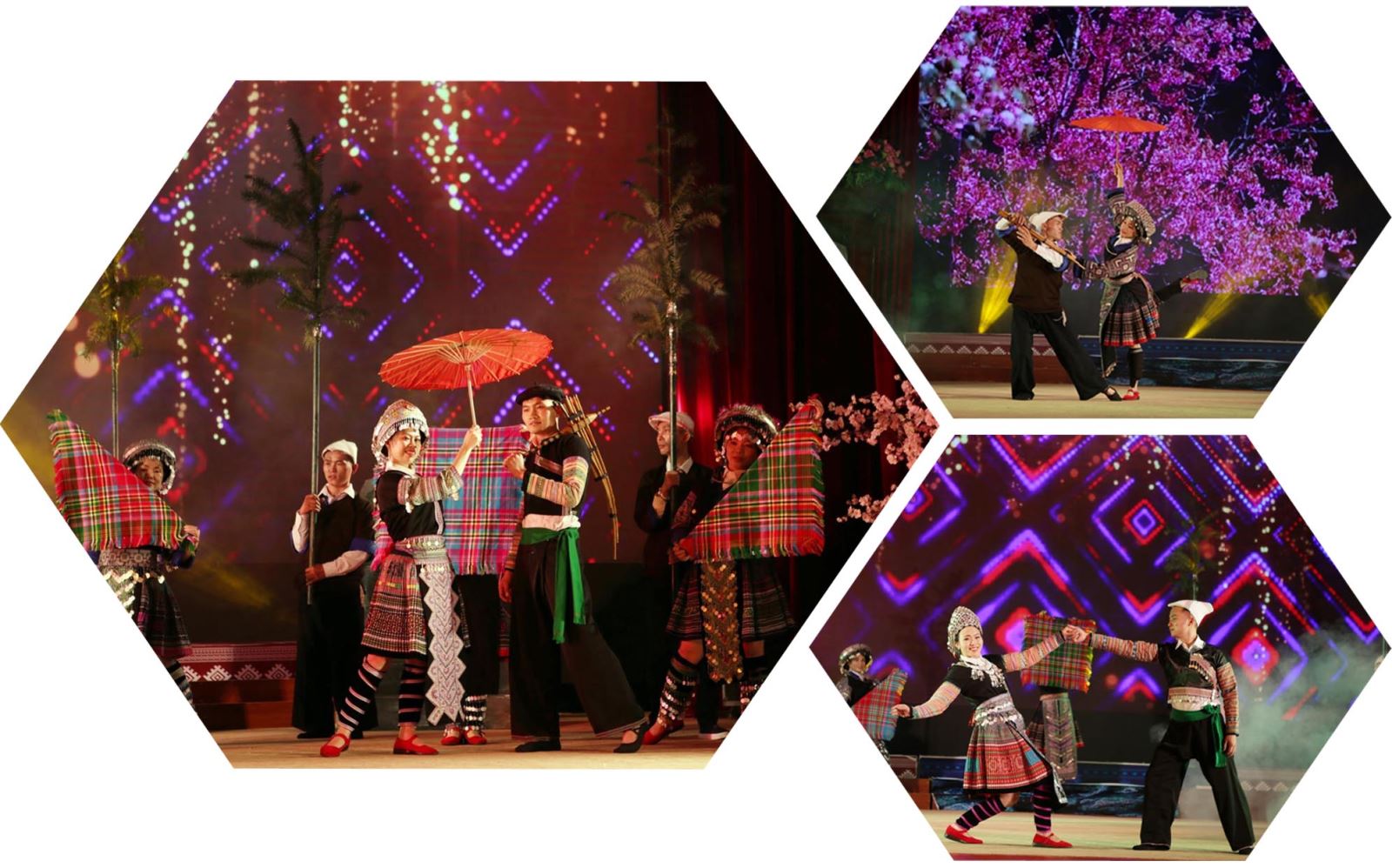
At the same time, the cultural values of the Vietnamese people must be formalised into standards and goals of each individual, each community, and each ethnic group, becoming a source of pride, strength, and immunity to the impacts of globalisation./.
